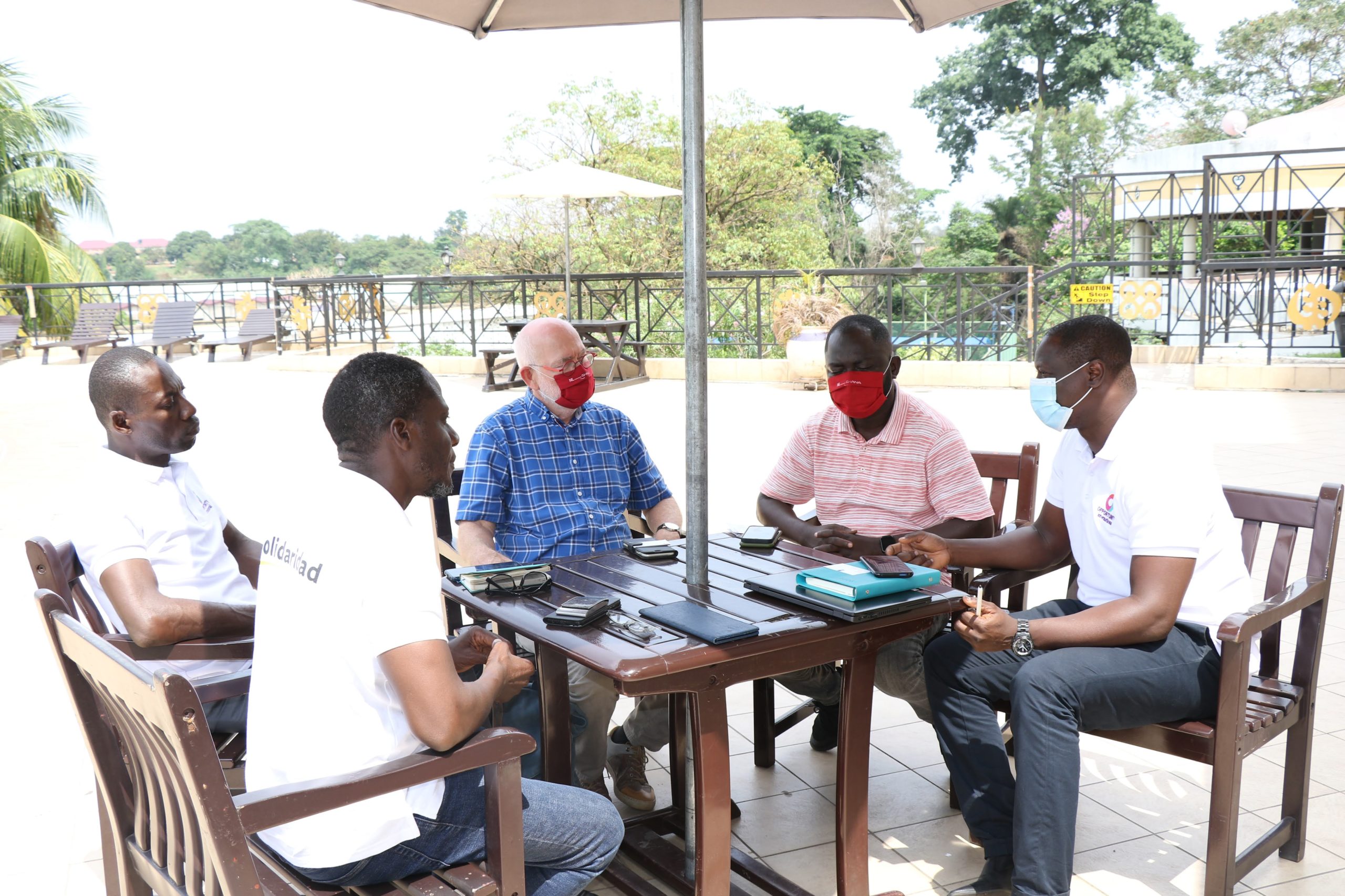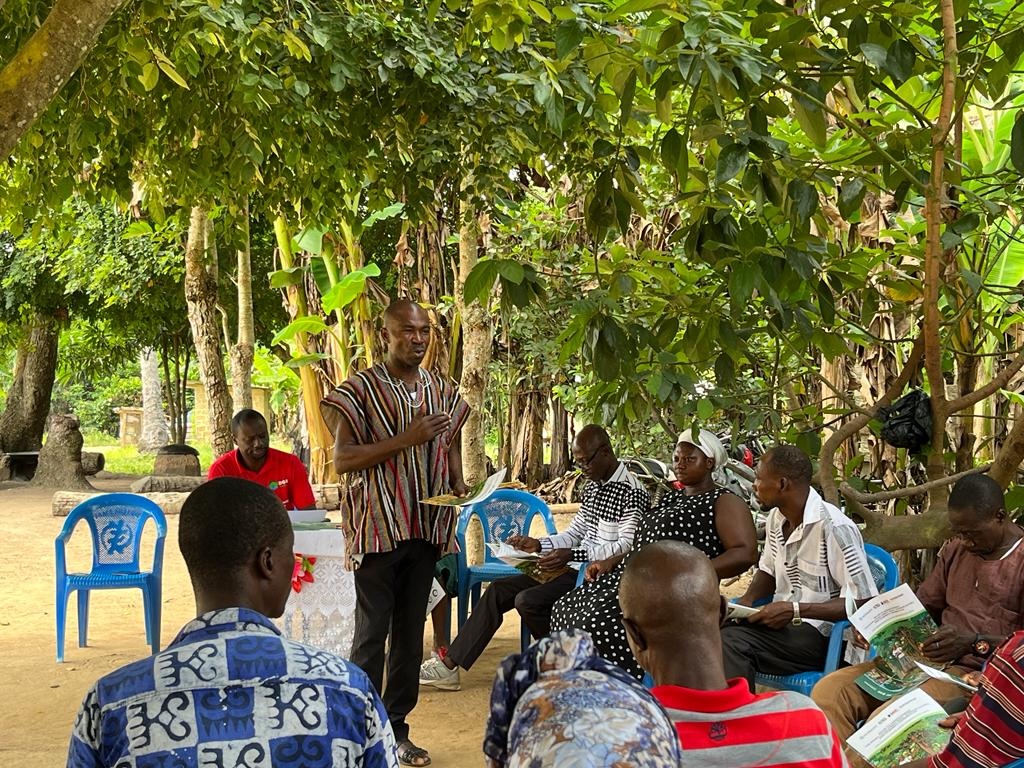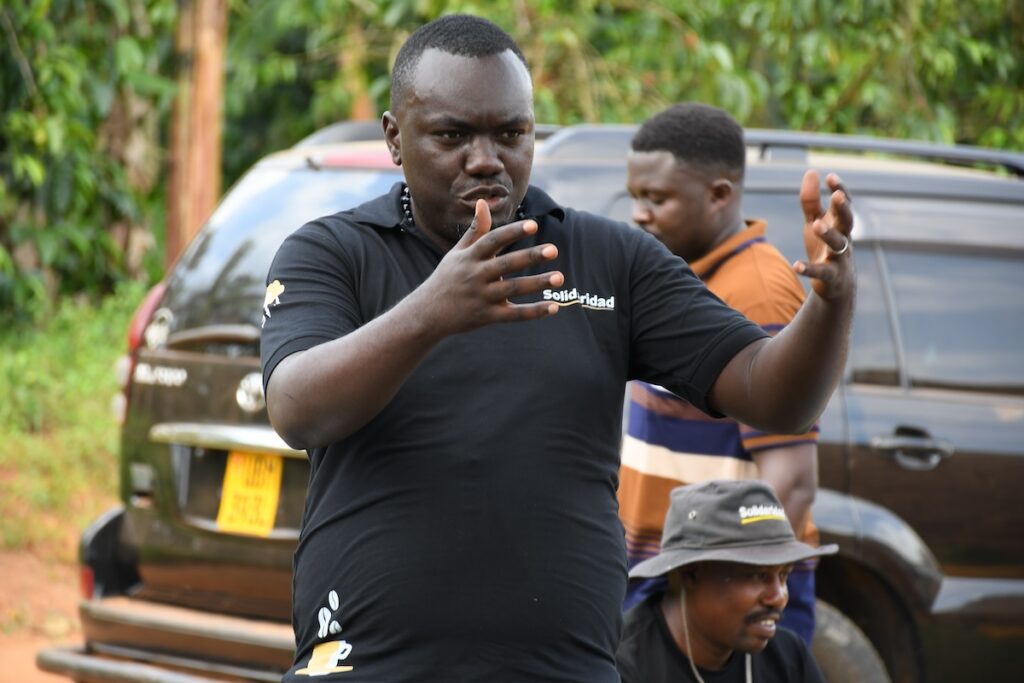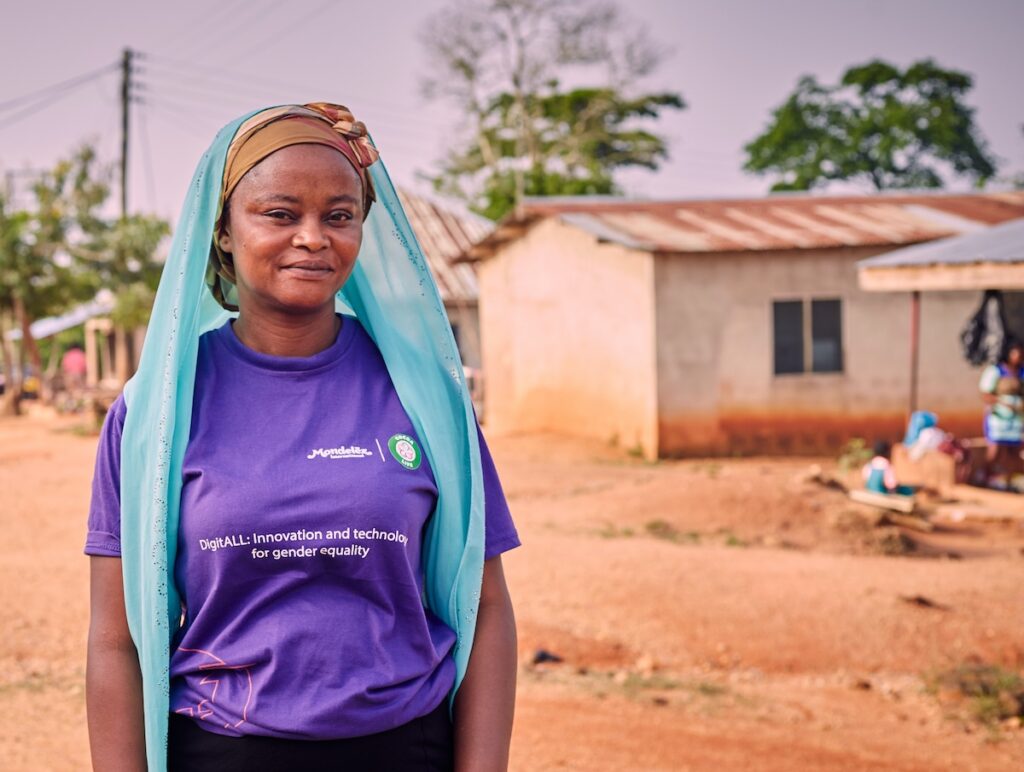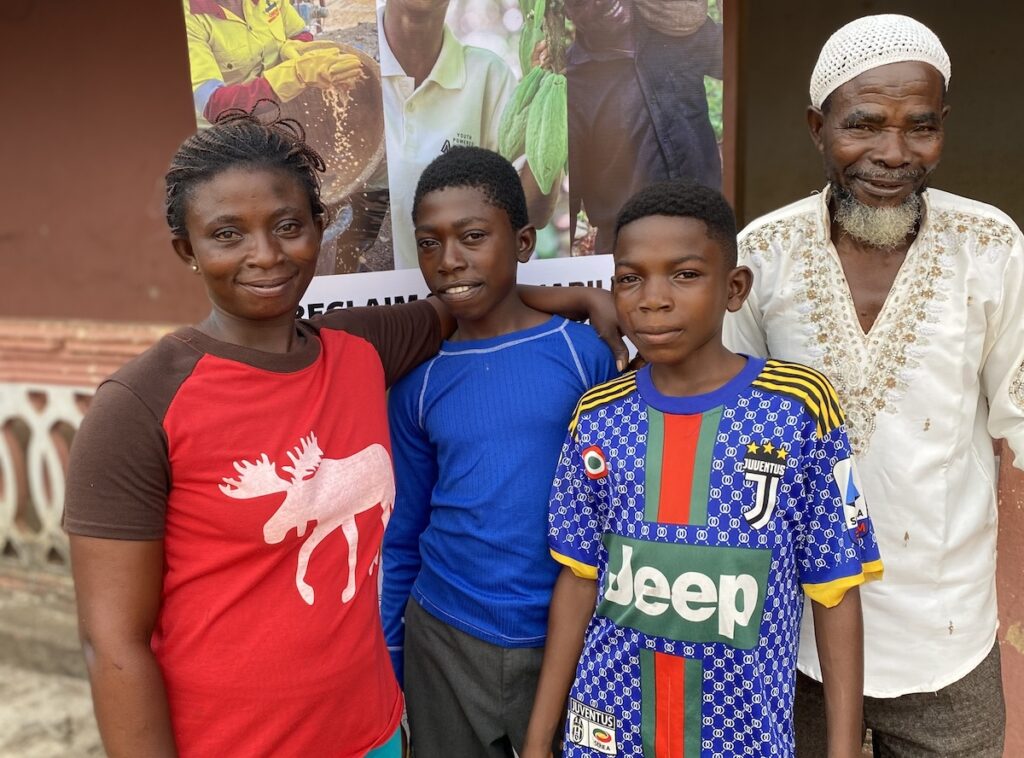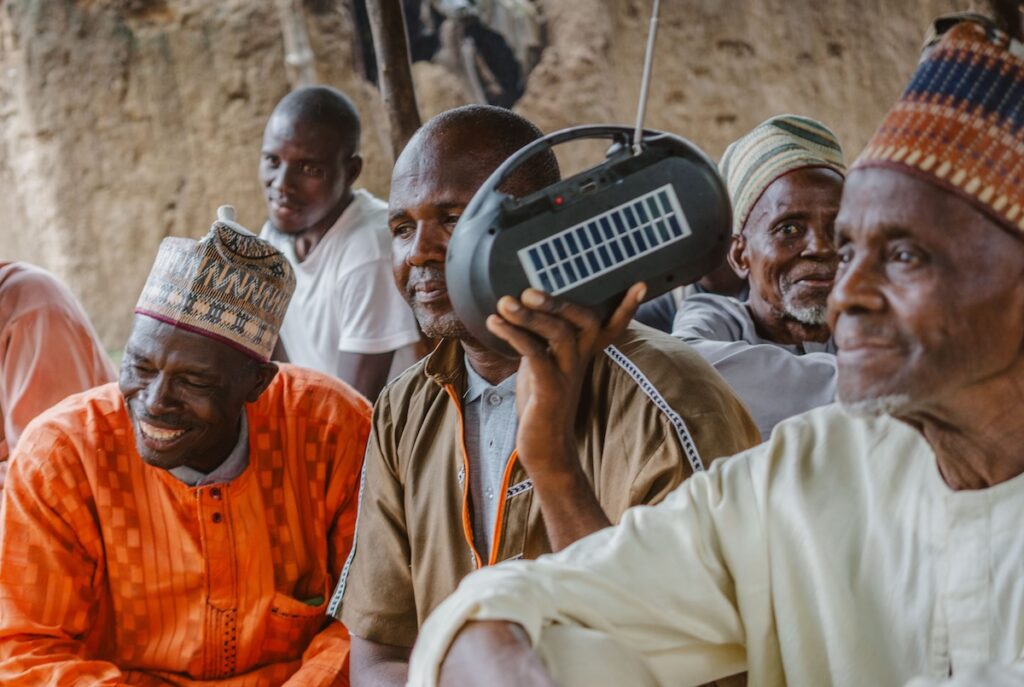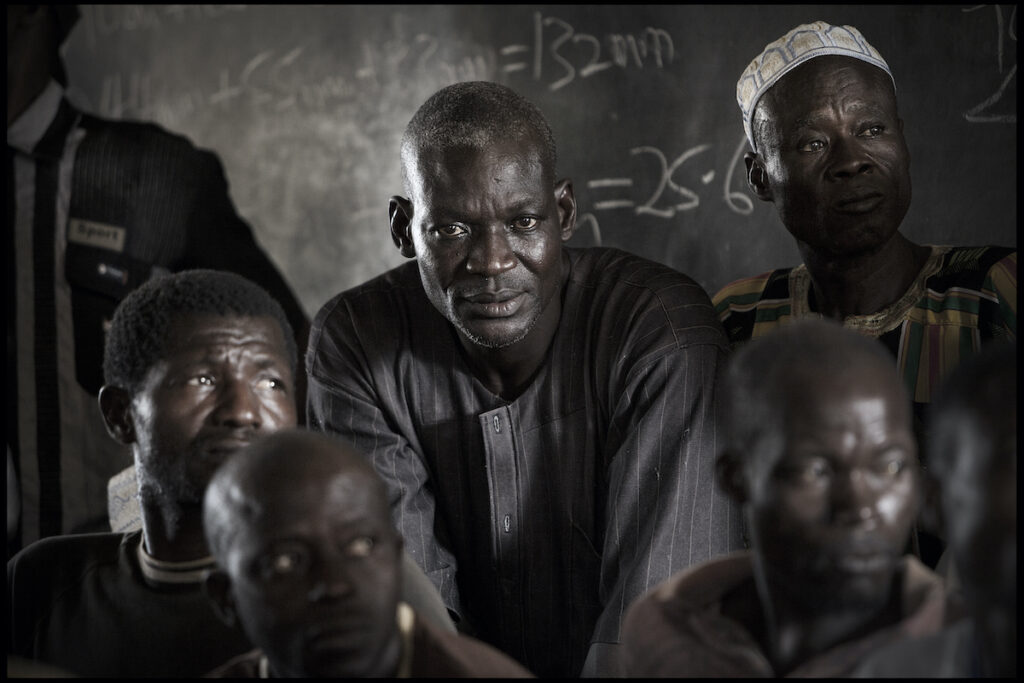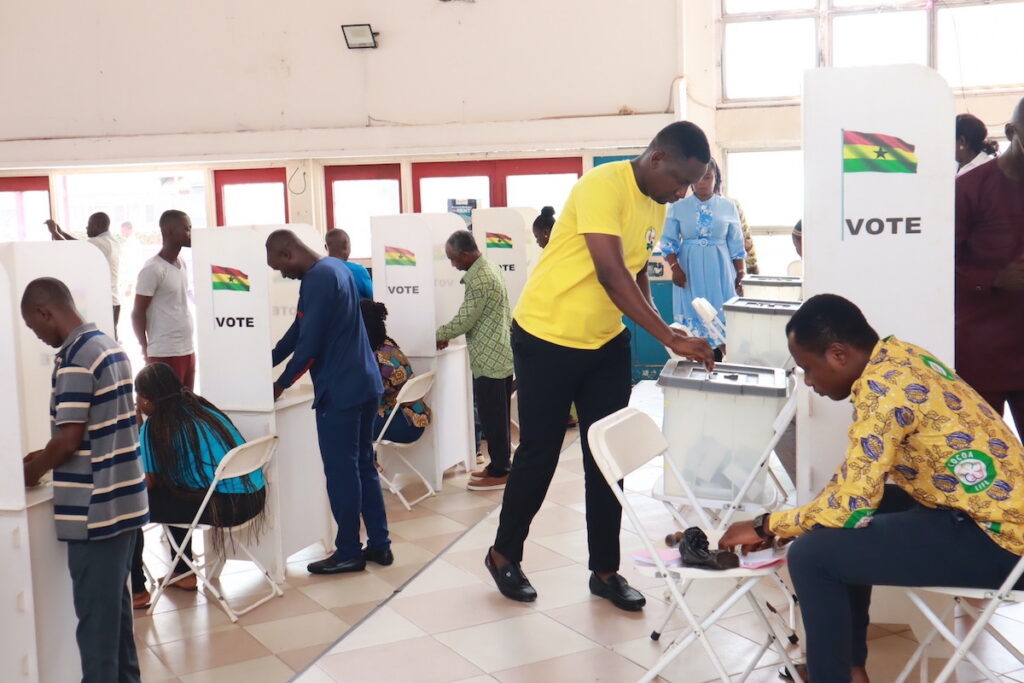The Netherlands Ambassador to Ghana, Jeroen Verheul, has applauded Solidaridad for facilitating access to finance for smallholder farmers in Ghana to improve cocoa production and enhance their incomes. He highlighted Solidaridad’s success in attracting financial institutions to the cocoa sector, and called for continued support.
The gains made must be sustained by providing longer maturity loans, reducing lending rates, and financing productivity-increasing investments like rehabilitation and irrigation systems.
Jeroen Verheul, The Netherlands Ambassador to Ghana
He appealed to financial institutions to develop products to suit the needs of farmers to grow the agricultural sector instead of shying away from it.
He said most financial institutions viewed farming as a risky venture and as such were unwilling to extend support to farmers for fear of losing their funds. He was, however, happy that Solidaridad, through the programme, was working with financial institutions to de-risk farmers to enable them to attract financing.
The Ambassador made these remarks in his interaction with Republic Boafo Microfinance Limited, Pan African Savings and Loans Limited and Opportunity International Savings and Loans Limited — some of the financial institutions collaborating with Solidaridad under the second phase of the Cocoa Rehabilitation and Intensification Programme (CORIP II) to provide loans to cocoa farmers. He was on a three-day working visit to some cocoa communities to acquaint himself with cocoa production.
He said the Embassy would leverage the gains of the programme and consider how best this could feed into the Embassy’s new cocoa strategy.
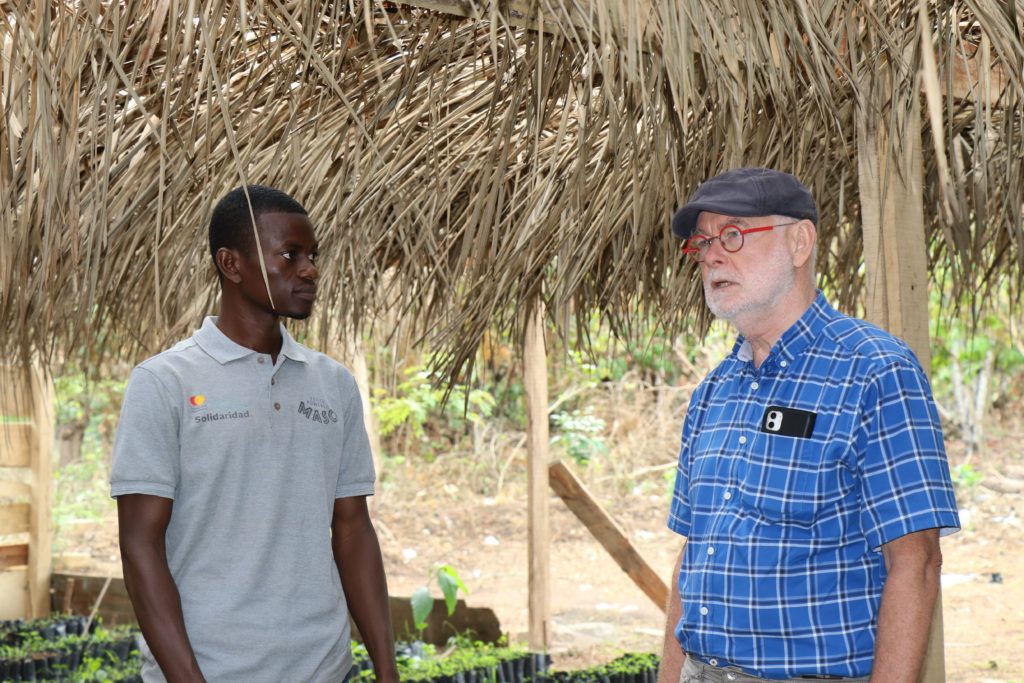
De-risking cocoa farmers to attract finance
Under the programme, beneficiary farmers were mobilized into Village Savings and Loans Associations (VSLAs) and given training in basic booking-keeping and financial literacy. This enabled the farmers to build savings and credit history, two inputs, among others, needed by financial institutions to make lending decisions.
For the first time, the Republic Bank has extended financial assistance to some cocoa farmers in the Western North region through collaboration with Solidaridad.
“So far, we have provided 405 cocoa farmers in the region with 936,000 Ghana cedis (120,962 euros) in loans. Our collaboration with Solidaridad has been fruitful, even though there remain a few challenges in recovering loans,” Robert Lomotey, Republic Boafo’s Zonal Manager responsible for the Western North region, said.
He intimated that the Village Savings and Loans Association made it easier for the bank to take the farmers on board, adding that the scheme was a sure way of helping farmers become bankable.
In 2018, Solidaridad, Pan African Savings & Loans (PASL) and Kookoopa collaborated to develop a smallholder loans product known as Akuafo Loan to support cocoa farmers.
Over 7,000 VSLA members have received approximately 30 million Ghana cedis in loans from the four financial institutions to invest in their cocoa farms and other additional livelihood activities. Hammond Mensah, Manager of CORIP II and Head of Access to Finance at Solidaridad West Africa emphasized the positive change being seen among some financial institutions towards smallholders.
The innovation that CORIP II delivers is to drive up affordable finance in the cocoa value chain. Today, some financial institutions who hitherto will not invest in smallholder farmers are doing so.
Hammond Mensah, Manager of CORIP II and HEAD of Access to Finance at Solidaridad West Africa
Providing employment for youth through RSCs
Established as part of the implementation of the Cocoa Rehabilitation and Intensification Programme, which ended in 2021, are Rural Service Centres. These centres were set up by young entrepreneurs with support from Solidaridad as a private sector-driven vehicle that provides full farm management services to smallholder farmers to increase their productivity and sustainability.
Jeroen Verheul, as part of his visit, interacted with some entrepreneurs who are managing the farms of aged and absentee farmers, as well as dealing in farm inputs and raising of nurseries to supply quality planting materials. Through the work of these youth, farmers who hitherto were struggling to manage their farms have improved their yields.
The ambassador, who was impressed by the work of the centres, told the Bono, Western North and Ashanti regional managers of the Cocoa Health and Extension Division (CHED) of the Ghana Cocoa Board in their discussions on opportunities and challenges in the sector, that not only do these centres have the expertise in managing farms, but have also led to job creation in the communities where they operate.
He appealed to the Board to collaborate with the youth in their rehabilitation of old and unproductive cocoa farms, and the provision of extension services to cocoa farmers.
The programme
The second phase of the Cocoa Rehabilitation and Intensification Programme was implemented in Ghana, Cote d’Ivoire, Sierra Leone and Liberia between 2017-2021. It followed the successful implementation of the first phase of the programme between 2013-2017, which demonstrated the business case for developing the West African Cocoa production through Rural Service Centres, a strategic institutional arrangement for sustainable production.
The main aim of the programme was to contribute towards the transformation of the cocoa sector in West Africa by developing country-level policy environments that support sustainable production and consumption and ensure that key stakeholders have the capacity to contribute towards engendering a responsible cocoa sector. It was also aimed at facilitating appropriate capital for the production of climate-smart cocoa, ensuring that women and youth have an equal say in how the sector is governed and its value distributed, as well as building production systems that are resilient and contribute to thriving cocoa-growing communities.

